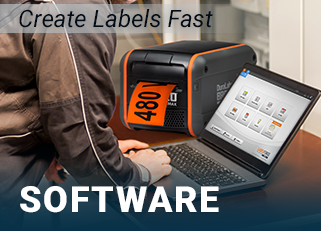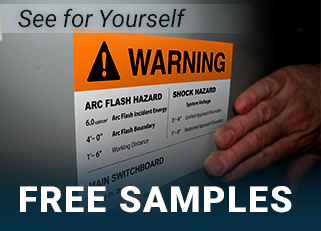Discussing the Manufacturing Distribution Model
03
February,
2023
6 MINUTE READ

Getting a product or service out of your business' hands and in front of customers is a complex process, whether you have a direct zero-level or indirect multi-level channel, short or long. Manufacturers and other industries can benefit from reflecting on their distribution strategies, learning about the different benefits that match their unique needs, and finding ways to improve. This week, marketing director Gina Tabasso of Dar-Tech Inc. leads the discussion of the Manufacturing Distribution Model for #USAMfgHour on Twitter.
Know the Ins and Outs
Analyzing the distribution channel strategy is important. Companies need to understand their scale, size, and location needs, seasonal spikes, marketing goals, and potential future. Tabasso started the chat by asking the group of manufactures and supporters to think about their distribution model. Do you use a distribution network, or are you a distributor?
"We are a manufacturer and sell our goods and services to other manufacturers," said Sue Nordman of Obsidian Manufacturing. "We purchase some components that are assembled into our products. We are not a distributor. Yes, most of the time (sell/ship directly). We are flexible. We will sell directly to them or sometimes they want a third party involved and we work with them as well."
"We do not use either. We are a contract mfg and make parts for other mfg companies," said Dan Bigger of Chenango Valley Technologies. "The only parts we manufacture and sell ourselves, we wholesale. This is our battery box & Tray lines."
"I have worked with a client a few years ago who imported and distributed marine parts and products across the UK," said Nigel T. Packer of PelaTis. "They had depots around the UK with their own vehicles. A great company supplying hundreds of shops and manufacturers."
"This isn't applicable to our business but it's interesting to see the various different answers," said Mike Womack of NJMEP.org. "Goes to show how diverse manufacturing can be!"
"We serve distributors with easy use analytics drawn from their ERP," said Phil Samuels of Intuilize.
"We are a specialty chemical and raw material distributor for the Midwestern U.S.," said Tabasso of Dar-Tech. "We sell additives, functional minerals, pigments, resins, to manufacturers in the adhesives/sealants, agriculture, car care, civil engineering, elastomers/rubber, metalworking lubricants, paint and coatings, plastics, and printing ink/graphic arts industries."
If you are a manufacturer or supplier, how do you find a distributor, or do they find you?
"We've worked with countless manufacturers unhappy with their distributors," said NJMEP.org. "Working with industry consulting partners can help alleviate much of the leg work required by the company to local reliable distributors. Many MEP centers offer this service!"
"Depending upon who has more #brand clout," said Sam Gupta, a business consultant at ElevatIQ. "If the distributor is bigger, the manufacturer needs to find them. If the manufacturer is bigger, the distributor might need to do the work. It's a game of influence."
"When I worked in production we delivered locally ourselves," said Packer. "For distance deliveries, I used a haulage company that would take return loads at a much-reduced cost. We were both winners."
"Great question, I would say that is a mixture of both," said CVT. "We have a trusted distributor network that we work with all of the time. Here and there we have to go outside of that, but we get recommendations, or they look us up."
"How did you build your trusted network?" Tabasso asked CVT.
"We have been doing this for 48 years, so I would assume over time. I have only been here for about 3 years," CVT said.
"People find us, and networking and trade shows are the way to connect with new leads," said Noah Katzenstein of The Artus Corporation.
"We haven't been going to virtual tradeshows; so, the digital world has been the focus," Tabasso asked Artus. "What have you shifted to? Networking?"
"Just trying our best to make connections wherever possible. Mostly virtually nowadays," Artus said.
"We don't use distributors. We sell direct. Most of our products last years and years. Some of the chucks that we repair are 50+ years old," said Nordman.
How do you prospect and find the manufacturers that you sell to since you do it directly without a distributor? How do you build those relationships?
"Marketing is not an easy thing for brands that are 70+ years old with products that last 50+ years," Nordman said. "Customer retention is key as well as dealing with multi-generations in all aspects of our business, including customers."
"I have worked as a manufacturer or distributor my entire career," said Samuels. "We hope to access my network."
"Our salespeople at Dar-Tech, two of whom are chemists, cold call manufacturers. We also are listed in industry directories," said Tabasso.
As a manufacturer or a supplier, what are you looking for in a distributor? What makes you choose one over the other? Or, what makes a good distributor or industry partner for those not in the distribution model?
"When I-personally- am looking for vendors, businesses, or individuals to work with, I always put communication and openness above all," said Julianne Schaub of Striven Software. "With distributors, I'm sure you'd want someone present that you felt could answer questions and be there when it mattered."
"That is a loaded question," said CVT. "The people that can help us with our customers' needs is a big one. Delivery timelines, prices, terms of payment, what they offer and do not, can we buy it all from 1 source, on and on that question could go."
"The ability to meet the needs of the consumer and accurately represent our company and products along the way," said Artus.
"Their ability to sell and meet their numbers," said Gupta.
"Aha! That's great insight," Tabasso said. "The distributor wasn't selling enough of the product into the territory. That equals time for a new distributor!"
"The answer often is the price," she said, but "we find that the connection with the personality of the rep and the customer service provided by the company also are huge factors."
Essential Tactics
How important is marketing to your business channel?
"Marketing is the lifeblood of any business," said Gupta. "It's like your IP when you have Google or content authority. Sales are like your sunk costs. It only helps with your current transaction. Long term = marketing, short term = sales."
"Marketing is essential to our business especially in terms of acquiring smaller clients," said New York Stucco and General Construction. "The existence of our website allows potential customers to see what we've done and our modus operandi before picking us as a contractor. It's been a success in getting people on board."
"Essential as most people have been drawn into our scaffolding rental and sales services via marketing," said Empire State Scaffolding.
"Up until recently, marketing wasn't important to the business," said John Buglino of Optessa. "We grew thru word of mouth. Now, I am here to take the business to the next level."
"Marketing keeps the work coming in, helps us grow, helps our credibility, helps with hiring, helps with client communication and client retention," said Paul Kiesche of Aviate Creative.
"I would say very," said CVT. "We didn't do any for 45 years. Now that we are we have seen a major uptick in business. We just added 11 new hires this week."
"Extremely! Without marketing, it would be hard for people to understand who we are and what we do - particularly in this time of a pandemic when we can't tell people face to face at shows or other events," said Rebecca Hart of DSI/Dynamatic.
"Marketing is built into our business strategy," said NJMEP.org. "We're one of the lucky MEP centers that have their own internal marketing department and we utilize the entire team to facilitate internal and external communication, support advocacy efforts, and so much more!"
"Our distributors have 1,000 vendors with 1,000 products each," said Samuels. "Marketing is how we maintain brand awareness. It's essential."
"With software, what it has to offer is not a physical thing that we can put pictures of online," said Striven. "We're constantly trying to find new, creative ways to showcase what our product DOES and not what it IS."
"Marketing is extremely important to any business, your product or service will likely sell without it, but the revenue will be significantly higher with a marketing strategy," said Carita Hyman of 360 Outcome. "More awareness = More sales!"
"Sales can be a treasure trove," said Ruby Rusine of Social Success Marketing. "They may have questions that they are often fielding from leads that could indicate ?felt' needs. Then, marketing can create stories for them to help sales make a sale. Then, there's data that you can use to (in)validate whatever marketing and sales initiatives you are doing, and yet to do."
"Our suppliers often are small and without a marketing person or are outside the U.S. and lean on their distributors to market their product," Tabasso said of Dar-Tech.
Is it important for a distributor to have salespeople who have additional product knowledge gained from past roles with suppliers or manufacturers?
"I think a salesperson should be very knowledgeable about what they are selling," said Kirsten Austin of DCSC Inc. "They should also be careful to set the tone correctly for any new engagement before it takes off, that helps to make it last."
"I think being cross-trained in most forms is beneficial for all jobs, so I think so," said Obsidian. "Being able to learn different aspects of a business helps with making a company work better as a whole."
"It certainly is a major plus," said Artus. "I think it is what takes the relationship to the next level. It is hard to sell the product if you don't know the product. Also, it makes finding the ?end-user' much easier because you know who might be looking for the product."
"All experience is good to have," said Nordman. "I'm not saying that inexperienced people are not valued because they bring a different viewpoint to the game but experience trumps a lot."
"Depends on the product," said Samuels. "Good rule of thumb-if you can easily find everything you need to know to make an informed decision online, probably not. When multiple variables come into play, a distributor can differentiate themselves from the big guys."
"This lends an added layer of expertise," said Tabasso. "Our two salespeople who were chemists have deep product knowledge and understanding of molecular compounds and how different chemicals can be combined to solve a problem. They think like formulators."
About #USAMfgHour
Anyone who champions U.S. manufacturing can join in on a new conversation each week on Twitter using the hashtag #USAMfgHour. The chat starts at 11 a.m. Pacific Standard Time/2 p.m. Eastern. Share positive blog posts, helpful articles, news, important information, accomplishments, events, and more with other manufacturers and supporters from throughout the country.
Are you interested in hosting a #USAMfgHour chat? Contact organizers @CVTPlastics, @DCSCinc, and @SocialSMktg.
RELATED RESOURCES

Corporate Disclosure Lags on Safety Metrics Reporting
Global companies are tracking workplace injury and safety data but are not making it public. Having ...
Read
Floor Marking Helps Maintain Safe Distances
Floor marking creates safe working and operating boundaries, but the possibilities are limitless. To help ...
Read
Distillery Switches from Whiskey to Sanitizer
An Oregon distillery puts aside normal whiskey production to help fill the hand sanitizer needs as ...
Read.png)


